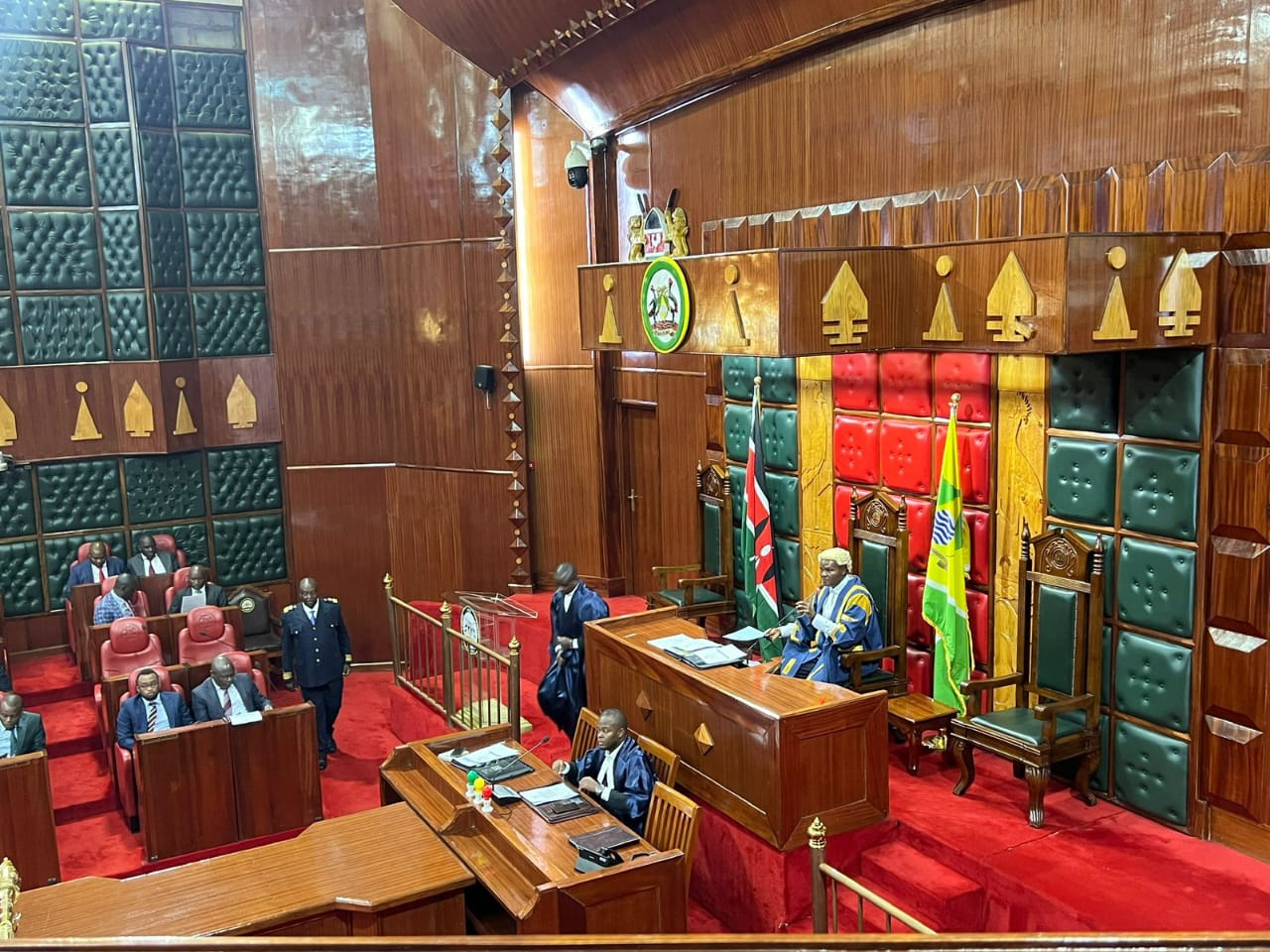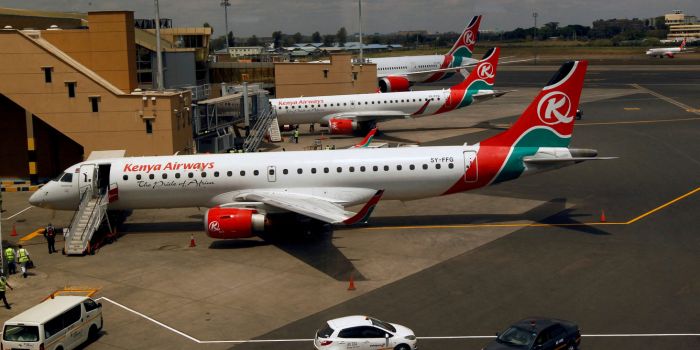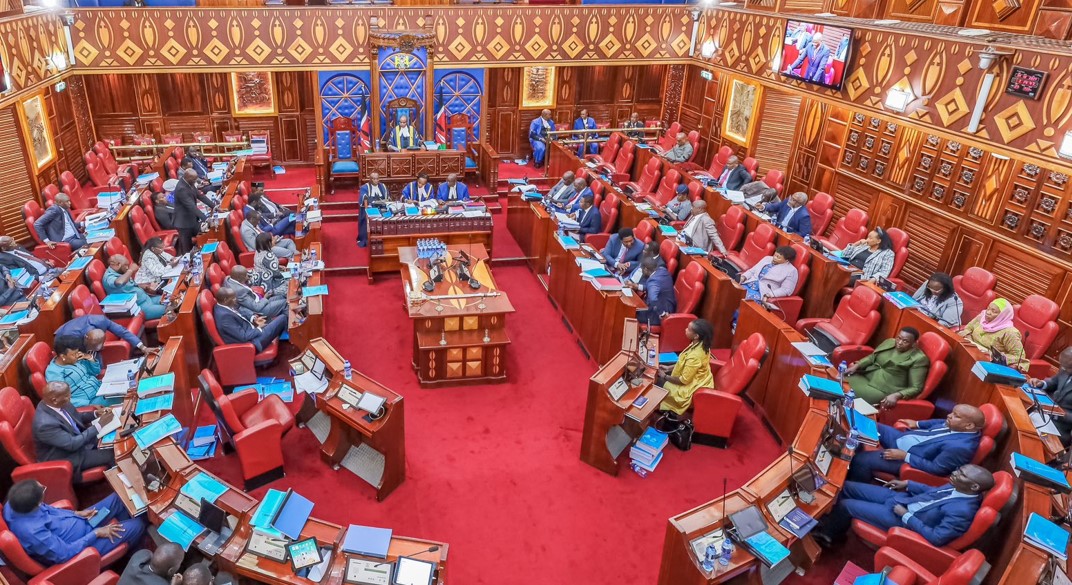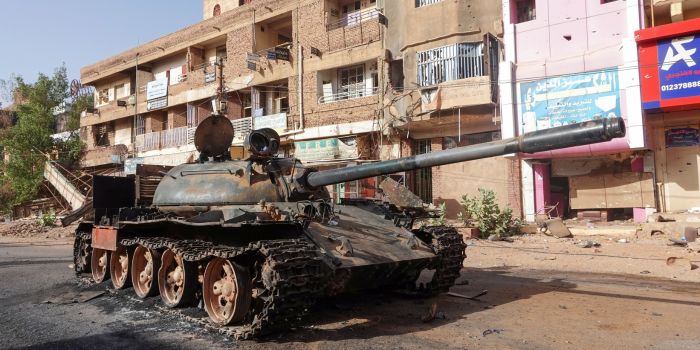Government warns Saba Saba protests could cripple Kenya’s economy, scare off investors
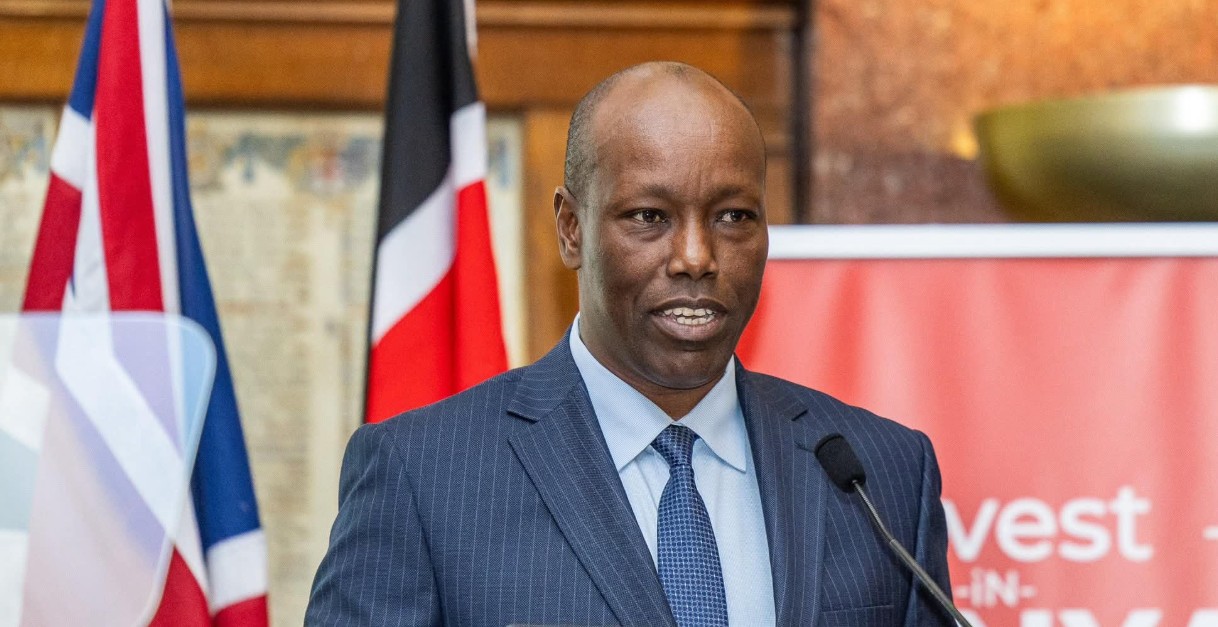
CS Kinyanjui has cautioned that business disruptions and property damage witnessed in past protests have painted Kenya as an unstable environment for investors.
As Kenyans brace for fresh Saba Saba Day protests on Monday, the government has raised concerns about potential economic falling-out, cautioning that repeated demonstrations could erode investor confidence and push the country toward economic decline.
Trade Cabinet Secretary Lee Kinyanjui has cautioned that business disruptions and property damage witnessed in past protests have painted Kenya as an unstable environment for investors.
More To Read
- CCTV exposes how goons violently invaded KHRC offices
- NPS calls for calm ahead of Saba Saba protests, warns against police provocation
- Saba Saba protests hijacked? Nairobi MCAs disown anti-government demos
- LSK, Police Reforms Working Group condemn storming of KHRC offices ahead of Saba Saba protests
- 'No parent should bury their child': Kenyan mothers speak out against police brutality, extrajudicial killings
- Motorists Association issues five demands ahead of Saba Saba protests
Kinyanjui emphasised that while the Constitution protects the right to protest, the violent turn of recent demonstrations undermines the very law that guarantees this freedom.
“If we want to protect the right to picket, we must also respect other provisions in the same Constitution. Damage to property and loss of life are unacceptable. They negate the very Constitution that protects the right to protest,” the CS said.
He added that what often begins as peaceful protests are now being hijacked by criminal elements, creating fear among entrepreneurs and endangering livelihoods.
“The exercise of this right must not be hijacked by criminal elements, but unfortunately, this has become a trend. Business owners live in fear of victimisation and the potential for violence,” he warned.
Repeated shutdowns
Kinyanjui further lamented that the cost of repeated shutdowns, especially in key business districts, is making the country appear unreliable and hostile to investment.
“The cost of shutting down businesses for days to accommodate protests makes Kenya seem unreliable and a dangerous place to invest in. I doubt any right-thinking Kenyan would advocate for such outcomes,” he said.
He called for calm and introspection among citizens, urging restraint and national unity.
“Let’s take a deep breath and reflect on the consequences of our actions, both current and future, and refrain from actions that are divisive and potentially dangerous. We must halt the race to the bottom. It pulls the whole nation down,” Kinyanjui added.
Multiparty democracy
The CS’s remarks come a day before the planned Saba Saba Day demonstrations, which mark the historic July 7, 1990 protests that led to the introduction of multiparty democracy in Kenya during the reign of the late former President Daniel Arap Moi.
On July 2, the National Alternative Alliance (NAA) declared plans to rally Kenyans in protest, citing dissatisfaction with President William Ruto’s leadership.
“We are going to organise protests to commemorate Saba Saba Day because Kenyans are angry about how Ruto is governing this country. There is nothing that is working except corruption,” the Alliance said.
In Nairobi, some business owners affected by the July 25 protests last month were seen reinforcing their shops in anticipation of possible unrest, as fears of looting and vandalism grow.
Following the wave of destruction, looting, and chaos that marred the protests, business owners say they are leaving nothing to chance.
Close shops
Most traders have reportedly confirmed that they will not open their shops on July 7 due to security concerns, with memories still fresh from the June 25 protests when goons looted shops and set some ablaze, particularly around the OTC area.
Despite plans to remain closed, many shop owners have reportedly reinforced their premises using thick metal sheets and welded bars, determined to safeguard their livelihoods from what they now fear is a routine threat during protests.
Others are also taking the drastic step of relocating stock to their homes in the estates, fearing another day of destruction. Some have even mobilised themselves to stay near their shops in groups to deter potential looters, saying they are tired of rebuilding from scratch after suffering repeated losses.
Meanwhile, the National Police Service (NPS) said it had not received any formal notice regarding the planned protests.
“Before I address the matter, I want to clarify that we have not received any formal application for the protests. We will release our statement once we receive an official application,” NPS spokesperson Muchiri Nyaga said during a TV interview.
Nyaga warned that unauthorised demonstrations often descend into chaos, resulting in property damage and public disorder.
Top Stories Today


